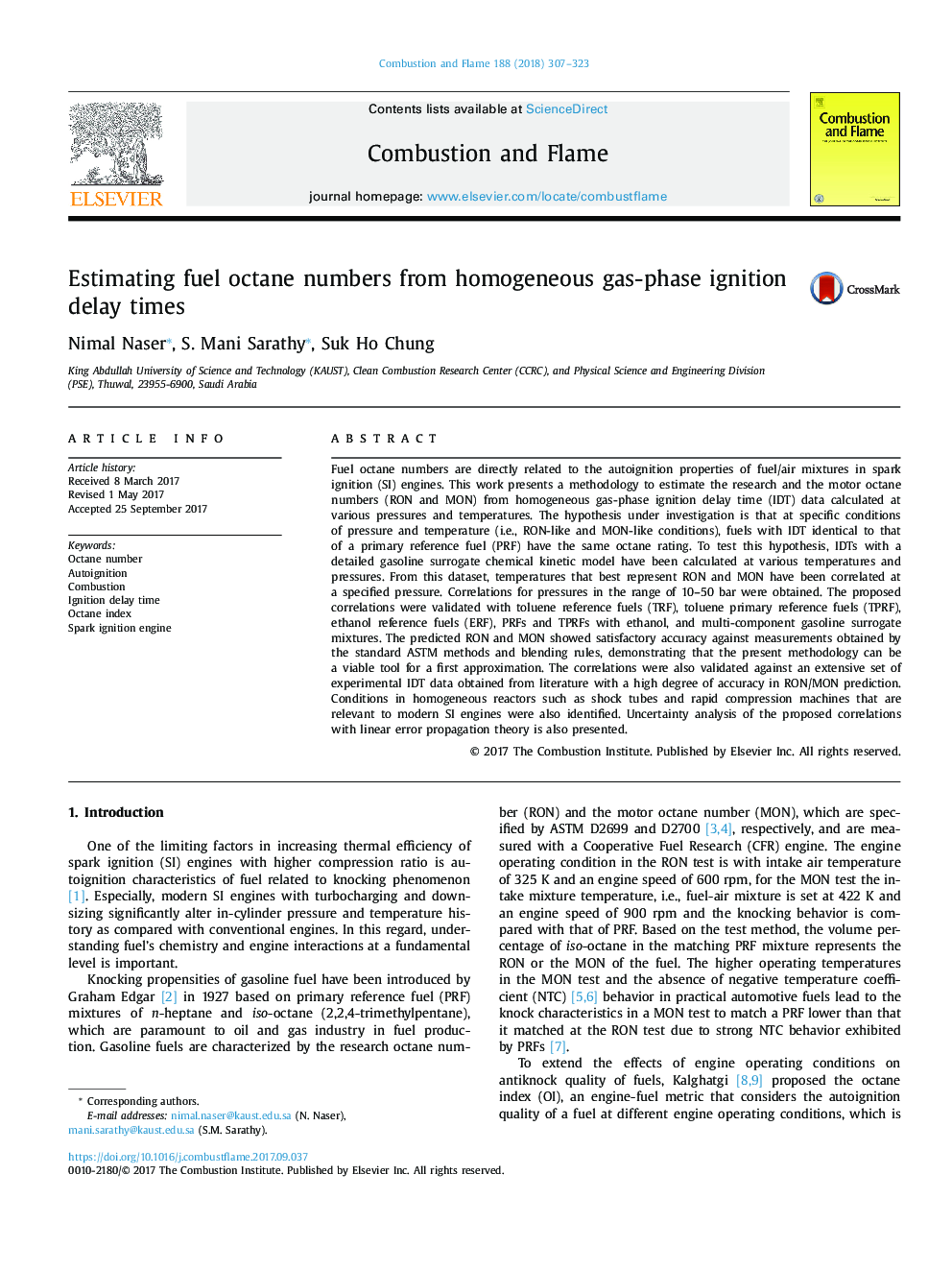| Article ID | Journal | Published Year | Pages | File Type |
|---|---|---|---|---|
| 6593962 | Combustion and Flame | 2018 | 17 Pages |
Abstract
Fuel octane numbers are directly related to the autoignition properties of fuel/air mixtures in spark ignition (SI) engines. This work presents a methodology to estimate the research and the motor octane numbers (RON and MON) from homogeneous gas-phase ignition delay time (IDT) data calculated at various pressures and temperatures. The hypothesis under investigation is that at specific conditions of pressure and temperature (i.e., RON-like and MON-like conditions), fuels with IDT identical to that of a primary reference fuel (PRF) have the same octane rating. To test this hypothesis, IDTs with a detailed gasoline surrogate chemical kinetic model have been calculated at various temperatures and pressures. From this dataset, temperatures that best represent RON and MON have been correlated at a specified pressure. Correlations for pressures in the range of 10-50Â bar were obtained. The proposed correlations were validated with toluene reference fuels (TRF), toluene primary reference fuels (TPRF), ethanol reference fuels (ERF), PRFs and TPRFs with ethanol, and multi-component gasoline surrogate mixtures. The predicted RON and MON showed satisfactory accuracy against measurements obtained by the standard ASTM methods and blending rules, demonstrating that the present methodology can be a viable tool for a first approximation. The correlations were also validated against an extensive set of experimental IDT data obtained from literature with a high degree of accuracy in RON/MON prediction. Conditions in homogeneous reactors such as shock tubes and rapid compression machines that are relevant to modern SI engines were also identified. Uncertainty analysis of the proposed correlations with linear error propagation theory is also presented.
Related Topics
Physical Sciences and Engineering
Chemical Engineering
Chemical Engineering (General)
Authors
Nimal Naser, S. Mani Sarathy, Suk Ho Chung,
